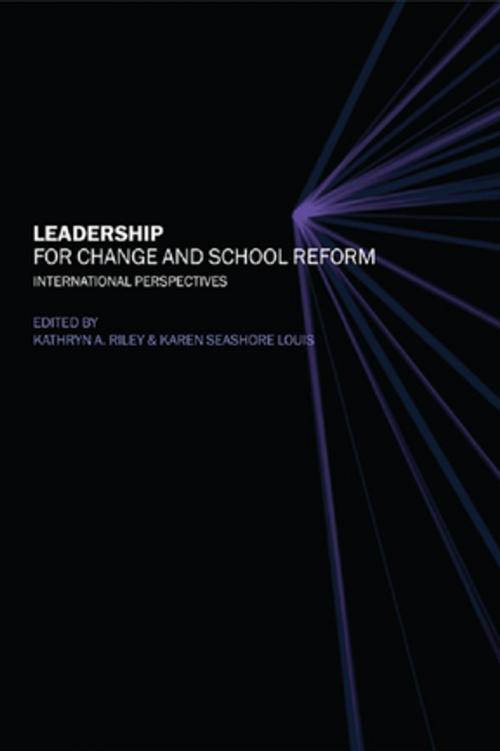Leadership for Change and School Reform
International Perspectives
Nonfiction, Reference & Language, Education & Teaching, Educational Theory, Leadership| Author: | ISBN: | 9781134586707 | |
| Publisher: | Taylor and Francis | Publication: | January 11, 2013 |
| Imprint: | Routledge | Language: | English |
| Author: | |
| ISBN: | 9781134586707 |
| Publisher: | Taylor and Francis |
| Publication: | January 11, 2013 |
| Imprint: | Routledge |
| Language: | English |
School reform is a top priority for governments today. This timely and challenging book, edited by leading international researchers, Kathryn Riley and Karen Seashore Louis, offers a rich comparative perspective on leadership for change and school reform. Contributors form North America, Europe and Australia demonstrate how school leadership is influenced by global pressures, differing national and state contexts and local concerns. They illustrate the limitations of reform initiatives which focus on school leaders tot he exclusion of the many other organisations which affect school, such as national and local governments, professional associations and school communities. This book raises some important questions such as:
*How can school leaders create intelligent, thinking schools?
*How can leadership and learning be linked together?
*What are the characteristics of effective local education authorities and school districts?
*What is the role of teacher organisations in educational reform and change?
*What happens if businesses, teachers, parents and local communities have different views of what makes a good school?
The text illustrates the ways in which leadership is rooted in learning, and identifies new directions for school leadership. It challenges conventional notions of leadership, offering an expanded view, which sees leadership just as an individual role-based function, but as a network of relationships among people, structures and cultures. This lively and provocative book should be read by all those interested in education reform.
School reform is a top priority for governments today. This timely and challenging book, edited by leading international researchers, Kathryn Riley and Karen Seashore Louis, offers a rich comparative perspective on leadership for change and school reform. Contributors form North America, Europe and Australia demonstrate how school leadership is influenced by global pressures, differing national and state contexts and local concerns. They illustrate the limitations of reform initiatives which focus on school leaders tot he exclusion of the many other organisations which affect school, such as national and local governments, professional associations and school communities. This book raises some important questions such as:
*How can school leaders create intelligent, thinking schools?
*How can leadership and learning be linked together?
*What are the characteristics of effective local education authorities and school districts?
*What is the role of teacher organisations in educational reform and change?
*What happens if businesses, teachers, parents and local communities have different views of what makes a good school?
The text illustrates the ways in which leadership is rooted in learning, and identifies new directions for school leadership. It challenges conventional notions of leadership, offering an expanded view, which sees leadership just as an individual role-based function, but as a network of relationships among people, structures and cultures. This lively and provocative book should be read by all those interested in education reform.















